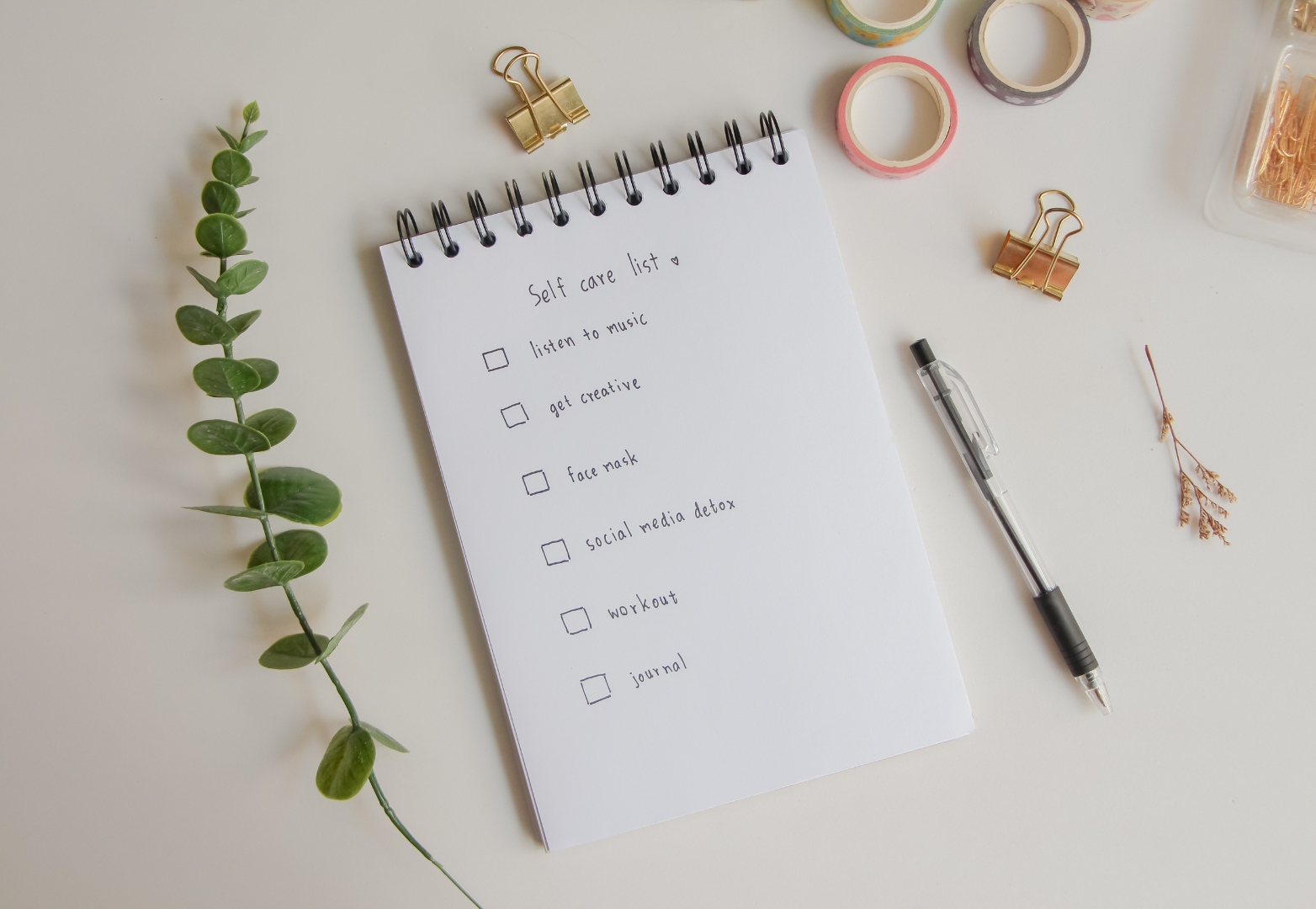Let's write a Self-Care List together.
Mental Health is a trending topic right now, but what is mental health? Mental health includes emotional, psychological, and social well-being. This affects our behavior, thinking, relationships, and decision making and is something that everyone should pay attention to.
Mental distress can happen at anytime and having a positive self care routine can help you to be better equipped to handle the day to day stressors or other life changing circumstances.
Self-care is a lifestyle, not simply a concept or trend. It involves doing things to better both your mental and physical wellbeing and live a more a satisfying life. In other words, it's all the ways you show yourself some love and kindness, especially when you're busy and don't feel you have the time.
Self care is different for everyone and should focus on things that YOU find comforting and joyful, as well as care for your basic needs. Creating a self-care list can hold you accountable to take the time, that you absolutely deserve, to work on personal growth.
Let’s start with considering these 7 factors when writing your list.

1) Build relationships. Be sure to spend time with friends and family. Go out, join a club, do something where you can meet new people in your community. Good relationships help build a strong support system.
2) Exercise and stay healthy. It's essential to get some physical activity for at least half an hour daily to feel invigorated and energized. Schedule short walks every hour, inside or outside, and take advantage of the benefits nature has to offer during spring.
3) Develop gratitude. Wake up every morning and think about all that you are grateful for. Keep a list to help you stay focused on the positives in life.
4) Identify and use your strengths. Start by conducting a Personal SWOT Analysis. SWOT is an acronym for strengths, weaknesses, opportunities, and threats and is a great tool to asses our capacities as individuals. Try out Positive Psychology’s Free SWOT Analysis Worksheet.
5) Be present. You know that feeling when you lose track of time because you are so immersed in the present moment? Think about what activities those are for you. Whether it’s work, hobbies, art, sports, or something else, go with the flow and enjoy the experience.
6) Give to others. Think about something you can do to be a more impactful member of your community. Look for local volunteering opportunities, help out a friend, anything that involved performing small acts of kindness.
7) Seek help. If you are having difficulty managing, seek care from a medical or mental health specialist. Knowing when to request aid is a crucial part of taking care of yourself.
Now you're ready to write your own personal self-care list. Here is an example:
Self-Care List
Being around friends and family
Dancing
Paying attention to self-critical thoughts and changing the track to a more positive one
Walking in nature
Listening to good music

What about a non-self care list?
Comparing yourself to other people
Too many late nights in a row
Missing meals
Too much screen time
Eating too much sugar
Self-care lists identify what makes you feel good and balanced while non-self care lists help identify certain actions that could sabotage your mental health. Try taking 5 minutes today to write out your self-care and non-self care lists. Think about what makes you happy and put them somewhere where you can easily look back at it when you need to. Happy Spring!
Sources
Narain, Nadia; Narain Phillips, Katia. self-care for the real world. London. Penguin Random House UK, 2017.